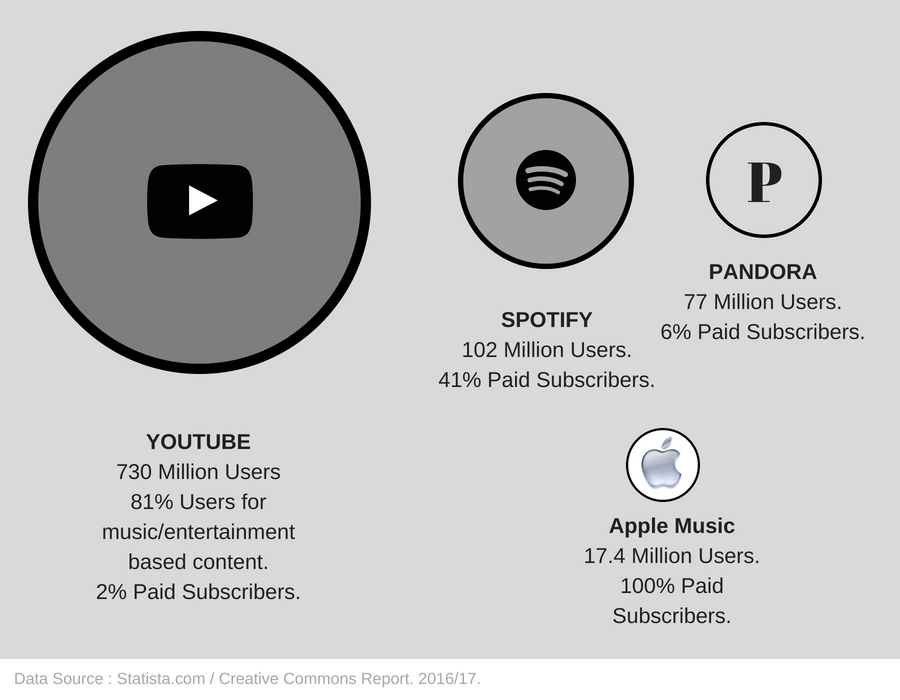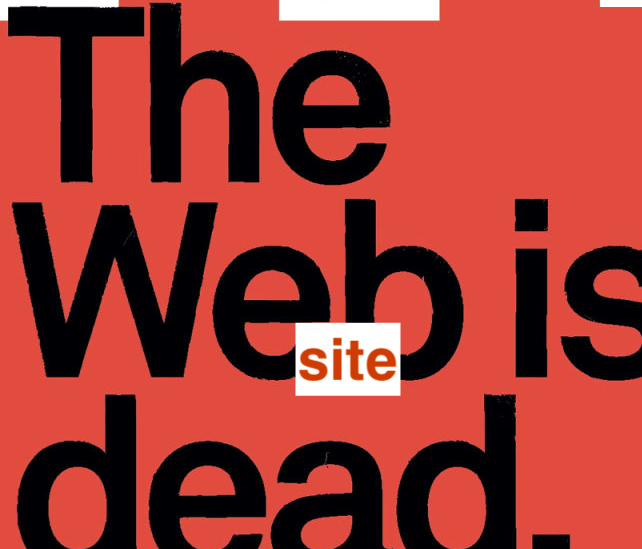Hey google censor-board. Please explain or least point out which part of the text / this article violates your rules. As you say community rules, who is the person reading this? Is there any transparency in such a community and it's long guidelines?
Certain folks (self-styled experts) refer to music produced post 2000 as 2.0 : So be it, and so be the gargantuan growth of music (hit or shit) online. Is music 2.0 different from it's previous version? Hypebot, which was the leading music propaganda machine [website] till 2011, recently published an article briefly explaining the current problems faced by the music industry and artists. Number one issue stated as demise in listenership and sales of long format albums. Understanding the current 'zeitgeist' by reflecting on the music sales of Adele, Jay Z, Kayne West etc. does not validate the issues nor present a true picture. Is music consumed the same way in China as in India or South Africa or Chile? Yet worldwide a certain change is felt now. The old paradigm that "the artist will make and the fans will pay" has fallen and in great jeopardy, at the hands of viciously competitive and 'profit-only' corporate treadmills. Now being embraced by a majority of artists as well audiences.
We look at the sharp decline of long format albums. Searching the mechanisms which control and profit from short catchy tunes, creating a general disinterest for narrative based artistic work. Why a majority of music lovers cannot consume albums with 10 or 15 or more songs anymore ?
Albums are Dead?
Ian Astbury from The Cult recently declared "We wont be making a new album – probably never again. Albums are dead, the format is dead ..." An interesting dichotomy appears inside the recording industry, bloggers and streaming services. As one group, clearly 20-something, a generation that prefers single tunes and short EPs in place of full length albums or even long compositions. The age of the 'Playlist' : Be it at home or a raging concert with a star DJ or some diva dropping her favorite tunes. It's mostly playlists. The last ten years have seen the rise of self-styled critics as well as highly elite review sites which often never hear the music existing outside institutionalized realms. Take the case of The Needle Drop, a popular music critic on youtube who claims "aim to give an accurate summary of all the music". The nerdy element is fun, the language very crisp, yet the critical view rather repetitive and almost always harboring on popular trends only. Expert rapid-fire capsule size reviews about the 'pop-emperor' Kayne West 's newest hit in contrast to the sonic complexity of vanguards like Autechre. Such critics have rapidly multiplied now, almost all of them chasing numbers and viewers regardless of the music in question. We speculate their reputation and objectives itself. The post 35 audience, who were teens in the 80s hold a different point of view on the subject. Benji Rogers, of PledgeMusic Crowdfunding platform, talking to the Economist magazine, argues that the album is “still valid for many people. The concept of belonging to a ‘tribe’ is still valid. Super fans buy to remember something they were there for. They want to say, ‘I was there ” The word 'there' itself is a dubious direction, as now one can live-stream many concerts, festivals and night-clubs as well the given mobile technology which allows mass viral sharing and consumption. "Albums with seven or eight or more songs define an artist's vision and talent in ways one or two tunes possibly cannot. One can see the life of a hit song, yet the artist behind the tune has a shorter career span now" states Darla Morgan at Meta-Critic, a music review website.
"Pitchfork and Consequence of Sound still prefers to review albums in place of singles, though the given populism and hype, these elite institution itself have lost their original charm and uniqueness. Take the recent article against long-format-pop music as suggested by corporate gurus peddling instant hit music" explains Susan Asrafi, Musicologist and PHD at Westminster College. "We also witness a barrage of really mediocre content clubbed with copy-cat PR campaigns on websites like YourEDM and Rap-Up Magazine which actually have over 1 million subscribers. Simply put, the bosses of these institutions want click-consumers and 'insta-consumption' in place of actual readers. Most of the editors and writers at such institutions and PR agenices simply do not have the time nor capacity to consume long format music" Billy Corgan, frontman of Smashing Pumpkins in a recent interview states "Look at where we are right now and imagine 5 years down the line .. The concept of an album will not loose it's place in mass culture yet it will transform itself .. there is very little chance today, that you will sit with someone or alone and listen to a complete album for 60 plus minutes".
Rory Seydel, a musician and writer states "The album gives you, the listener an entire conceptual universe to dig into.." Yet as we ask folks about "concept" it appears very fuzzy and open to interpretation given the evident 'reducing patience' factor. The market is witness to a vehement rise of 'playlist culture' : There are playlists for babies to sleep, for couples to have sex, for you to meditate or jog or drink and party. The irony is that most consumers now care less about the narrative or individual artists inside these mindless, system-generated barrage of playlists on Spotify, AppleMusic, Pandora and other leading streaming services. "The user benefits in no proven way with playlists compared to full albums. But it's clear that vicious competitive corporate systems profit from such consumerist cultures" states Gerhart Zinn speaking at the 2016 Berlin Music Week. "There were more daily streams in 2016 (1.2 billion) than there were song downloads in the entire year of 2016 (734 million). The days of actually owning the song or album object, either physically or digitally, seem to be almost over" says Rory Seydel. Folks at Bandcamp.com recently commented "though we had good results with our phone app, in terms of public participating (generating playlists) .. yet a large part of our subscribers and artists are listening and uploading full length albums, way more than singles and EPs. Industry trends that grew and fell in various parts of the world earlier are now controlled globally by a few tech-giants like Apple, Google, Facebook, Spotify etc. 'Digital habits and tastes' are hard to change because the revenue systems make sure the public keeps looping inside predetermined chains of consumption. So must music listeners to a large extent today.
Bounce Rate?
The morality of numbers and gains does affect many musicians, reflected in the daily 'battle' to gather more fans and subscribers online. Eyes and senses are now normalized, to judge a song or artist even before listening, by merely looking at the number of likes, dislikes, shares and hits. Artists and professionals and audience alike are prone to this sort of bullshit ! "Consider the Bounce-Rate factor of listening to music online. Recently published data shows that less than 29% of the tunes posted on soundcloud.com are played in their entirety. A large majority of the online audience moves to a new song, new page, different genre via hard-core propaganda every 30 to 40 odd seconds. Regardless if it's albums or playlists, very few listeners now seek new artists or new narratives, and instead prefer to consume small-easy-to-consume nuggets of sound and propaganda" states Commentary Magazine. A similar pattern is visible in the reading time on music review blogs and websites. Recent data reveals the average bounce-rate is 58 seconds per article on over 1000 music websites. This website's average bounce-rate is 26.5 seconds. We are racing to hear or the other way around?

Adorno's Nightmare.
"Tunes will get shorter and shorter, till they are rendered to a status of basic jingles" The term Culture Industry (German: Kulturindustrie) was coined by the critical theorist Theodor Adorno (1903–1969) His pathbreaking studies into the consumption patterns of emerging popular music has proven to be almost prophetic today, 80 odd years on. In his essays, as lineage of the Frankfurt School of Critical Theory stated that in the future, various societies regardless of race and language will "use music and sound to manipulate mass society into passivity". Horkheimer and Adorno contended that industrially produced culture "robs people of their imagination and takes over their thinking for them" . Today we witness the theory manifesting in a global sense : Be it automated playlists, code-generated suggestions about videos and tunes, background 'muzak' at airports, trains and shopping malls, hundreds of apps which want to automate our lives, library of short sampled sounds for easy-music-production, presets and templates for specific genres of music and many such uncreative unintelligent services being sold to audiences and artists alike. "Adorno was very correct to an extent, that the attention-span and genuine interest of the audiences will perish in face of the massive generation of identical cultural waves and institutional propaganda" says Gunzelin Schmid [Dialectic of enlightenment Stanford, Calif. 2006] Recently interviewed anonymous music producer Spycam (New Delhi) "it's shameful to admit i guess, but i check my phone to see if there are new followers and messages, many times while composing and recording music .. Why I don't know?"
Morality of the Album.
We look at the sharp decline of long format albums. Searching the mechanisms which control and profit from short catchy tunes, creating a general disinterest for narrative based artistic work. Why a majority of music lovers cannot consume albums with 10 or 15 or more songs anymore ?
Albums are Dead?
Ian Astbury from The Cult recently declared "We wont be making a new album – probably never again. Albums are dead, the format is dead ..." An interesting dichotomy appears inside the recording industry, bloggers and streaming services. As one group, clearly 20-something, a generation that prefers single tunes and short EPs in place of full length albums or even long compositions. The age of the 'Playlist' : Be it at home or a raging concert with a star DJ or some diva dropping her favorite tunes. It's mostly playlists. The last ten years have seen the rise of self-styled critics as well as highly elite review sites which often never hear the music existing outside institutionalized realms. Take the case of The Needle Drop, a popular music critic on youtube who claims "aim to give an accurate summary of all the music". The nerdy element is fun, the language very crisp, yet the critical view rather repetitive and almost always harboring on popular trends only. Expert rapid-fire capsule size reviews about the 'pop-emperor' Kayne West 's newest hit in contrast to the sonic complexity of vanguards like Autechre. Such critics have rapidly multiplied now, almost all of them chasing numbers and viewers regardless of the music in question. We speculate their reputation and objectives itself. The post 35 audience, who were teens in the 80s hold a different point of view on the subject. Benji Rogers, of PledgeMusic Crowdfunding platform, talking to the Economist magazine, argues that the album is “still valid for many people. The concept of belonging to a ‘tribe’ is still valid. Super fans buy to remember something they were there for. They want to say, ‘I was there ” The word 'there' itself is a dubious direction, as now one can live-stream many concerts, festivals and night-clubs as well the given mobile technology which allows mass viral sharing and consumption. "Albums with seven or eight or more songs define an artist's vision and talent in ways one or two tunes possibly cannot. One can see the life of a hit song, yet the artist behind the tune has a shorter career span now" states Darla Morgan at Meta-Critic, a music review website.
"Pitchfork and Consequence of Sound still prefers to review albums in place of singles, though the given populism and hype, these elite institution itself have lost their original charm and uniqueness. Take the recent article against long-format-pop music as suggested by corporate gurus peddling instant hit music" explains Susan Asrafi, Musicologist and PHD at Westminster College. "We also witness a barrage of really mediocre content clubbed with copy-cat PR campaigns on websites like YourEDM and Rap-Up Magazine which actually have over 1 million subscribers. Simply put, the bosses of these institutions want click-consumers and 'insta-consumption' in place of actual readers. Most of the editors and writers at such institutions and PR agenices simply do not have the time nor capacity to consume long format music" Billy Corgan, frontman of Smashing Pumpkins in a recent interview states "Look at where we are right now and imagine 5 years down the line .. The concept of an album will not loose it's place in mass culture yet it will transform itself .. there is very little chance today, that you will sit with someone or alone and listen to a complete album for 60 plus minutes".
Bounce Rate?
The morality of numbers and gains does affect many musicians, reflected in the daily 'battle' to gather more fans and subscribers online. Eyes and senses are now normalized, to judge a song or artist even before listening, by merely looking at the number of likes, dislikes, shares and hits. Artists and professionals and audience alike are prone to this sort of bullshit ! "Consider the Bounce-Rate factor of listening to music online. Recently published data shows that less than 29% of the tunes posted on soundcloud.com are played in their entirety. A large majority of the online audience moves to a new song, new page, different genre via hard-core propaganda every 30 to 40 odd seconds. Regardless if it's albums or playlists, very few listeners now seek new artists or new narratives, and instead prefer to consume small-easy-to-consume nuggets of sound and propaganda" states Commentary Magazine. A similar pattern is visible in the reading time on music review blogs and websites. Recent data reveals the average bounce-rate is 58 seconds per article on over 1000 music websites. This website's average bounce-rate is 26.5 seconds. We are racing to hear or the other way around?

Adorno's Nightmare.
"Tunes will get shorter and shorter, till they are rendered to a status of basic jingles" The term Culture Industry (German: Kulturindustrie) was coined by the critical theorist Theodor Adorno (1903–1969) His pathbreaking studies into the consumption patterns of emerging popular music has proven to be almost prophetic today, 80 odd years on. In his essays, as lineage of the Frankfurt School of Critical Theory stated that in the future, various societies regardless of race and language will "use music and sound to manipulate mass society into passivity". Horkheimer and Adorno contended that industrially produced culture "robs people of their imagination and takes over their thinking for them" . Today we witness the theory manifesting in a global sense : Be it automated playlists, code-generated suggestions about videos and tunes, background 'muzak' at airports, trains and shopping malls, hundreds of apps which want to automate our lives, library of short sampled sounds for easy-music-production, presets and templates for specific genres of music and many such uncreative unintelligent services being sold to audiences and artists alike. "Adorno was very correct to an extent, that the attention-span and genuine interest of the audiences will perish in face of the massive generation of identical cultural waves and institutional propaganda" says Gunzelin Schmid [Dialectic of enlightenment Stanford, Calif. 2006] Recently interviewed anonymous music producer Spycam (New Delhi) "it's shameful to admit i guess, but i check my phone to see if there are new followers and messages, many times while composing and recording music .. Why I don't know?"
Morality of the Album.
Given many of us still dip into albums of yesteryears (or decades) every now and then, happily streaming [without shuffle] our favorite classics start to finish. But it’s becoming clearer by the day that the dominant modes of listening are single song streams and playlists. The reasons apparent if not obvious, as explained above. Commercial radio, leading streaming services, you-tube and such has stupefied us with its constant treadmill of hits (or shits), yet the album is far from dead. "The artistic desire to create music and the need to build a narrative through sound or lyrics is still very prevalent amongst artists, albeit the fall of album sales and attention-span. Hence, the industry and it's current hiatus aside, the album will continue to live and develop" states Julien Oliver. The pop music industry has no morality and artists striving for individuality, space (time) and freedom to express should be aware of this fact. The album era which is defined as a period in english-language popular music from the mid 1960s to the end of 2005 in which the 'album' was the dominant form of recorded music expression and consumption. Yet, that very definition is a rather shameful reminder that there are many other existing cultures and sub-cultures (non english) allover the world : and way more accessible today, given the available technology to search, consume and share new music, new albums and new artists. We as musicians and artists are at a cusp, but we always have a choice.
Robert Rich, a popular ambient musician, released a series of albums as DVDs in place of CDs and singles. Challenging a certain cliche that "less is more" the series of albums clock in at an ear-stretching 4 hours, 49 minutes.
Robert Rich, a popular ambient musician, released a series of albums as DVDs in place of CDs and singles. Challenging a certain cliche that "less is more" the series of albums clock in at an ear-stretching 4 hours, 49 minutes.































0 -